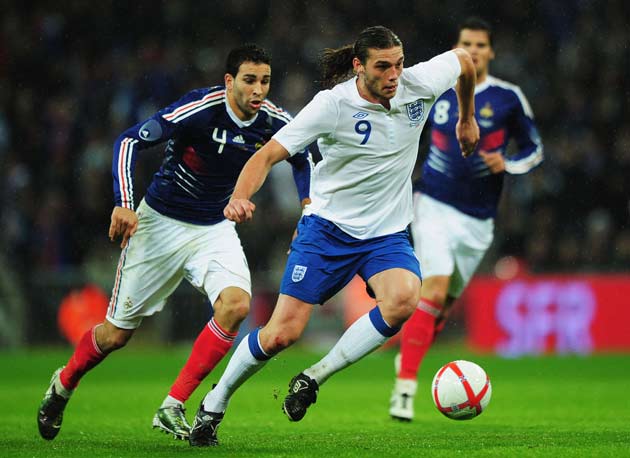Capello's new favourite is just too old-fashioned

Your support helps us to tell the story
From reproductive rights to climate change to Big Tech, The Independent is on the ground when the story is developing. Whether it's investigating the financials of Elon Musk's pro-Trump PAC or producing our latest documentary, 'The A Word', which shines a light on the American women fighting for reproductive rights, we know how important it is to parse out the facts from the messaging.
At such a critical moment in US history, we need reporters on the ground. Your donation allows us to keep sending journalists to speak to both sides of the story.
The Independent is trusted by Americans across the entire political spectrum. And unlike many other quality news outlets, we choose not to lock Americans out of our reporting and analysis with paywalls. We believe quality journalism should be available to everyone, paid for by those who can afford it.
Your support makes all the difference.For the England management, the aftermath of Wednesday's sorry encounter with France soon became an exercise in straw-clutching. It was no surprise to hear which straw Fabio Capello grabbed most gratefully.
Yet even as Andy Carroll received a majority of the few plaudits bestowed on anyone in a white shirt, an uncomfortable question demanded to be answered: is Newcastle United's so-called "old-fashioned centre-forward" what England want or need? (The clue may be in the adjective.)
Capello's praise was generous and exuded gratitude on a night when he could claim few other positives except exposing young players to the fear that Wembley apparently spreads through the home dressing-room.
He said of Carroll: "I saw the game he played against Arsenal, he surprised me, and this evening he confirmed what I saw. For him today was the same as in the Premier League. For some other players it was different. The first time he played here he played with confidence, without fear. I think he will be very important for England for the future. I hope Andy will be in the same moment in February."
Other questions for the next game in February, against opponents yet to be announced, are whether Carroll will manage to side-step trouble in the festive season preceding his next court case and whether Wayne Rooney will be sufficiently fit to demand a place.
On the disciplinary matter first, the management seem convinced they have got their message across. Having promised a headmasterly lecture, Capello says he duly administered it: "I told him it's really important because the press, the TV, the photographers, will be focusing on him and his behaviour. I told him he had to be careful in every moment. Be careful when you drink something because the mobile [phone] is terrible. You have to be careful with the friends you choose."
As to Carroll's potential new friend on the field, Capello appears to be dreaming of a partnership with Rooney. "If they stay fit it will be a really important combination. All the people know that when Rooney is fit and in good form, he is one of the best players in the world. He makes a difference. France without [Karim] Benzema [would be] another team. When you play at this level you have to be more fit than normally, 100 per cent."
There are visions of Rooney flitting just behind Carroll, which would mean Steven Gerrard dropping deeper, where he is less effective, or moving out to the left, from where Carroll needs the service (absent against France from either side) of aproper winger.
But to return to the question: is the tactic of using a big man up front the one that suits England best? Those who claim they should go back to the most basic of basics and play a "traditional" British style, rather than trying to emulate the fancy Continental passing game of France and Spain, believe that is the way to go.
Yet this method has never ever succeeded at the level that really matters. Of the top 10 goalscorers in English football, only one, Nat Lofthouse of Bolton, was that type of player. (For younger readers, he is the "old-fashioned centre-forward" who scored in an FA Cup final without touching the ball, simply barging the goalkeeper over the line.) Mark Hateley, a striker Carroll closely resembles, failed to reach double figures in more than 30 games, as, of course, did Emile Heskey in twice as many. Malcolm Macdonald, another revered Tyneside No 9, scored five in one game against Cyprus and only one in his other 13 games. Good club players all, though not necessarily what England needed.
The other problem with using this type of striker is that they tend to dictate the team's strategy just by being there. On Wednesday it took England precisely 25 seconds from the time of kicking off until Joleon Lescott sent the first long ball forward towards Carroll.
Capello says Carroll will be part of the squad in February. But it would be wrong to suppose he is the answer to all the woes exposed on Wednesday.
Join our commenting forum
Join thought-provoking conversations, follow other Independent readers and see their replies
Comments